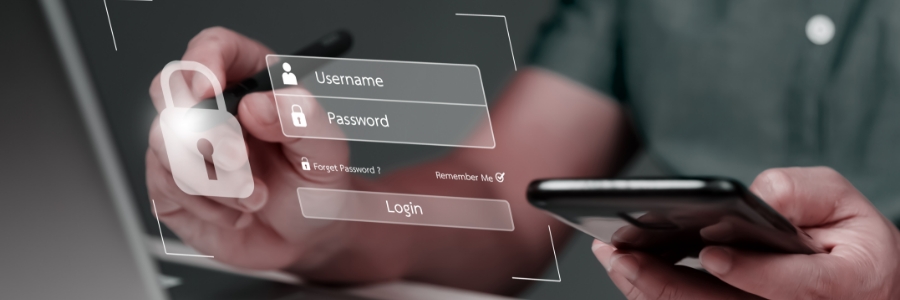In the landscape of cybersecurity, the humble password remains the first line of defense against a slew of digital threats. For small-business owners, understanding the intricate dance between convenience and security is not just a good business practice — it’s paramount to survival.
But how well do you truly grasp the importance of password hygiene? Are there gaps in your knowledge that could be exploited by cybercriminals, endangering your precious business data? Let’s test your acumen in the art of password management in this quiz. Buckle up, answer honestly, and be prepared to fortify your weakest link!
Password hygiene quiz
Question 1: Which of the following passwords is the strongest?
- P@ssw0rd
- CorrectHorse36BatteryStaple
- CompanyName1234
Answer: The strength of a password is determined by complexity and length. While "CorrectHorse36BatteryStaple" may seem easier to remember, "P@ssw0rd" is a common pattern. "CompanyName1234" could contain a guessable component, depending on your industry and public information. The best option here is B
Question 2: Is it okay to share your business password with a trusted colleague?
- Yes, as long as they are in the business network
- No, never share passwords
- Only if it's absolutely necessary
Answer: The correct answer is C. Sharing passwords should always be avoided if possible, but in certain cases, such as when a password is tied to a team function, it's better to ensure your employees know the best practices rather than refuse to share at all
Question 3: Which of the following methods is the safest way to store your passwords?
- Writing them down on a sticky note
- Memorizing them
- Using a secure password manager
Answer: The most secure method is C, as a password manager provides encryption and additional security measures to keep your passwords safe. Memorizing is an option, but it’s often not feasible for numerous accounts. Writing passwords down makes them easy to snatch
Question 4: How often should you update your business passwords?
- Every 90 days
- Every 6 months
- Annually or when a breach is suspected
Answer: The recommended frequency for updating passwords is C. The National Institute of Standards and Technology advises against frequent password changes unless there's a specific threat or compromise. This recommendation aims to prevent the common practice of creating shorter, simpler passwords that are changed frequently and, as such, are more vulnerable to attacks
Question 5: What does multifactor authentication (MFA) involve?
- Logging in using two different passwords
- Using a password and a security question
- Providing two or more forms of verification to access an account
Answer: MFA involves C. It adds an extra layer of security beyond just a password by requiring additional forms of authentication, such as a code sent to your phone or a fingerprint scan. This makes it harder for hackers to gain access to your accounts, even if they obtain your password
Question 6: What is the safest way to recover a forgotten password for a business account?
- Clicking on the "forgot password" link and answering security questions
- Contacting customer support and providing personal information
- Creating a new account with a different email address
Answer: While it may seem easier to contact customer support or create a new account, these methods can put your personal information at risk. Option A, answering security questions, is a more secure choice, but it's important to choose strong and unique answers that can't be easily guessed or found online
Question 7: When should you log out of business accounts?
- Never, it's not necessary
- Only when using a public computer
- Every time you finish using the account
Answer: The safest practice is C. Even if you're using a personal device, it's important to log out of your accounts after each use. This reduces the risk of someone accessing your accounts if your device is lost or stolen
How well did you do?
You've completed the quiz! How did you do?
- 7: Outstanding! Your knowledge and practices are rock solid; your data is well protected.
- 4–6: Good effort! There's always room for improvement, but your security measures are heading in the right direction.
- 0–3: It's time to strengthen those passwords and practices. Don't worry! Better security habits are only a few steps away.
Seeking professional support
When it comes to safeguarding your business's digital assets, every decision you make can be the difference between safety and exposure. It's not just about you; it's about the trust your customers place in you to protect their data, and the longevity of your business in an increasingly digital world.
If cybersecurity feels like a nebulous and daunting world for your small business, rest assured that you're not alone. Fortunately, there are numerous resources available to help you strengthen your password practices and secure your data. Talk to one of our experts at outsourceIT today — we understand the unique needs of small businesses and can provide tailored solutions to meet your specific cybersecurity needs.

